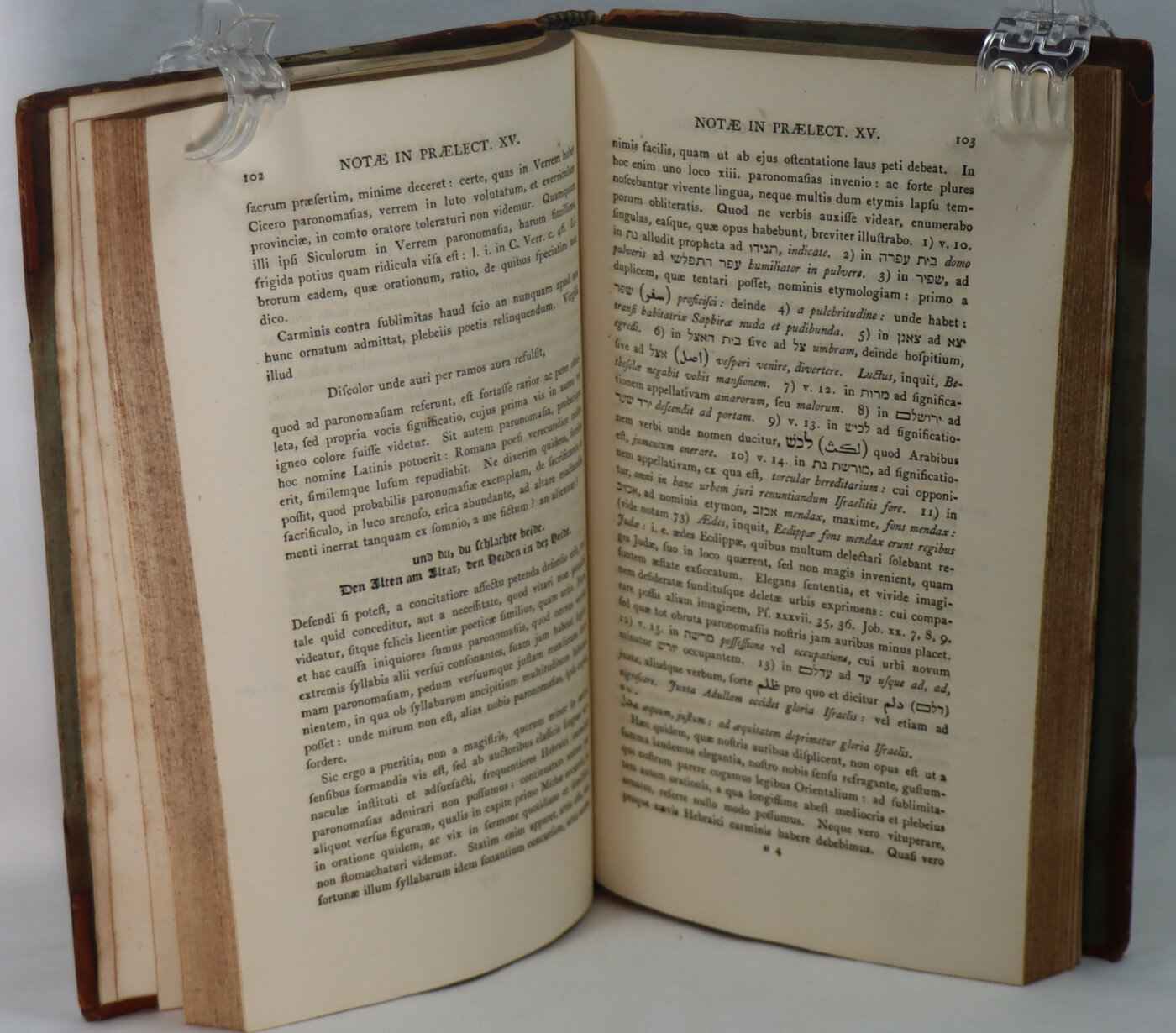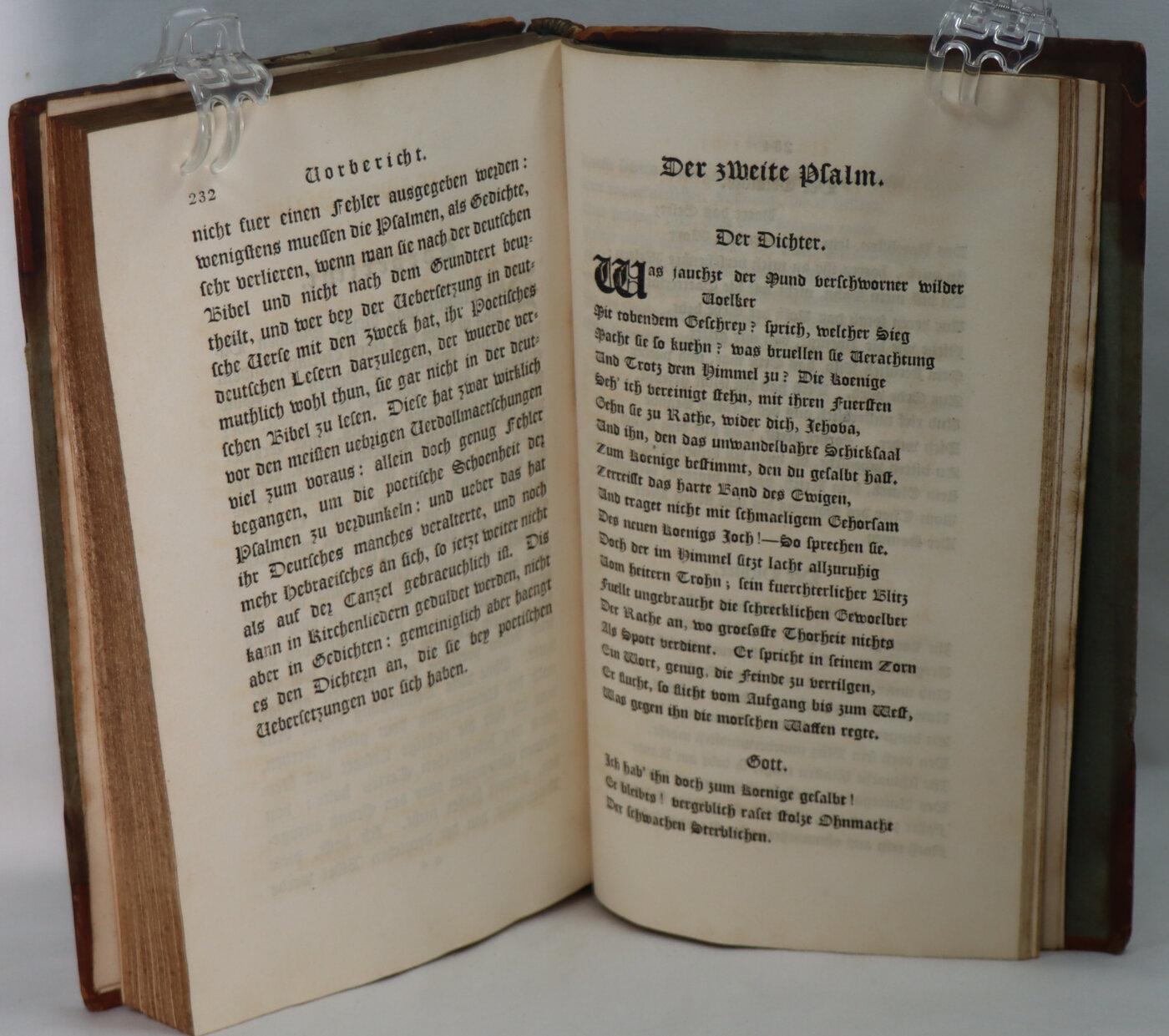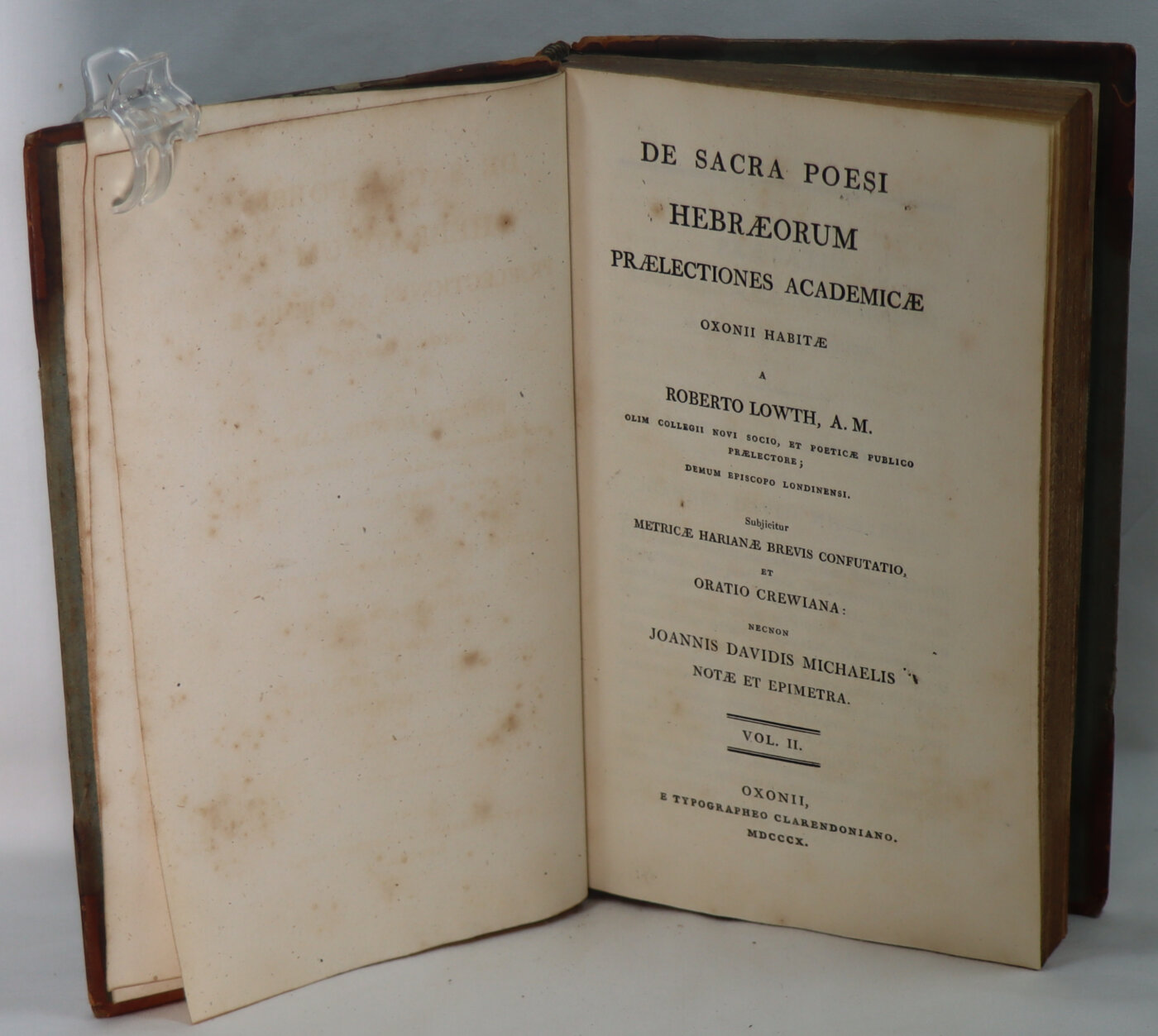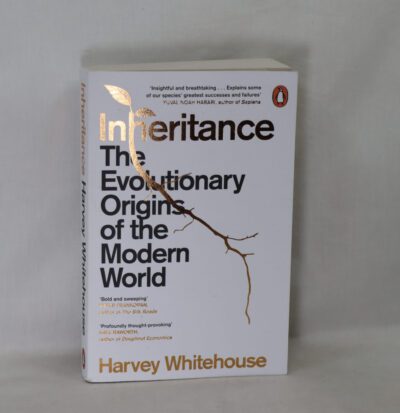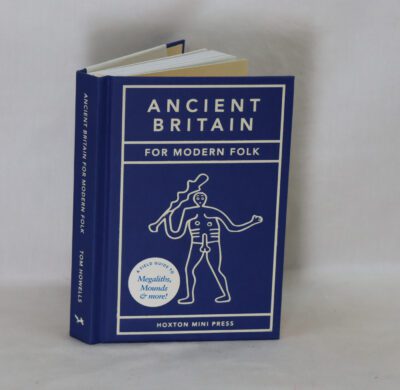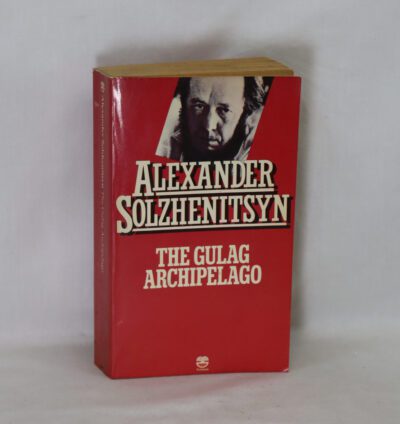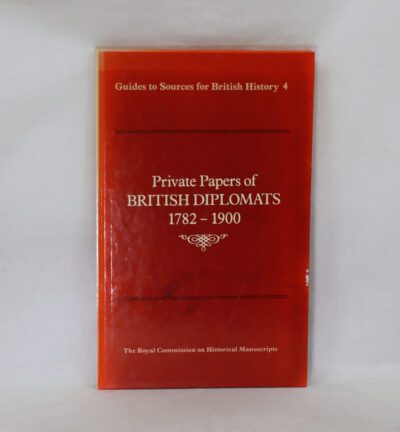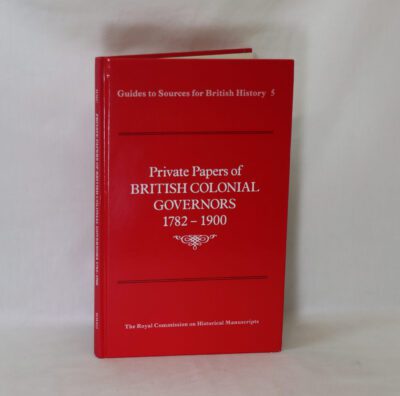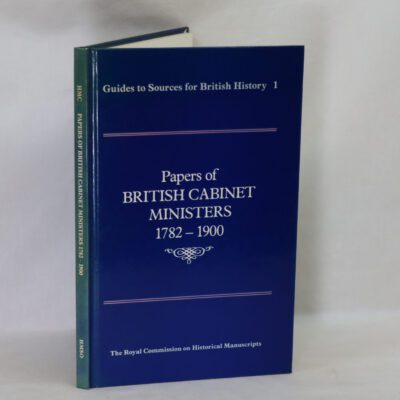Lowth's Praelectiones Academicae.
By Roberto Lowth
Printed: 1810
Publisher: Clarendoniano.
| Dimensions | 14 × 22 × 2 cm |
|---|---|
| Language |
Language: Latin
Size (cminches): 14 x 22 x 2
Condition: Very good (See explanation of ratings)
Your items
Item information
Description
Brown calf spine with gilt title, decoration and banding. Green boards.
We provide an in-depth photographic presentation of this item to stimulate your feeling and touch. More traditional book descriptions are immediately available.
Note: This book carries the £5.00 discount to those that subscribe to the F.B.A. mailing list.
A lovely copy of the second volume (2 of 2) of Lowth’s famous work. This volume is less valuable than those published in English as the note below illustrates.
Robert Lowth FRS (27 November 1710 – 3 November 1787) was a Bishop of the Church of England, Oxford Professor of Poetry and the author of one of the most influential textbooks of English grammar.
Lowth was born in Hampshire, England, Great Britain, the son of Dr William Lowth, a clergyman and Biblical commentator. He was educated at Winchester College and became a scholar of New College, Oxford in 1729. Lowth obtained his BA in 1733 and his Master of Arts degree in 1737. In 1735, while still at Oxford, Lowth took orders in the Anglican Church and was appointed vicar of Ovington, Hampshire, a position he retained until 1741, when he was appointed Oxford Professor of Poetry.
Bishop Lowth made a translation of the Book of Isaiah, first published in 1778. The Seventh-day Adventist theologian E. J. Waggoner said in 1899 that Lowth’s translation of Isaiah was “without doubt, as a whole, the best English translation of the prophecy of Isaiah”.
In 1750 he was appointed Archdeacon of Winchester. In 1752 he resigned the professorship at Oxford and married Mary Jackson. Shortly afterwards, in 1753, Lowth was appointed rector of East Woodhay. In 1754 he was awarded a Doctorate in Divinity by Oxford University, for his treatise on Hebrew poetry entitled Praelectiones Academicae de Sacra Poesi Hebraeorum (On the Sacred Poetry of the Hebrews). This derives from a series of lectures and was originally published in Latin. An English translation was published by George Gregory in 1787 as “Lectures on the Sacred Poetry of the Hebrews”. This and subsequent editions include the life of Bishop Lowth as a preface. There was a further edition issued in 1815. This was republished in North America in 1829 with some additional notes. However, apart from those notes, the 1829 edition is less useful to a modern reader. This is because the editor of that edition chose to revert to citing many of the scriptural passages that Lowth uses as examples, and some of the annotations by Michaelis) and others, in Latin.
Lowth was appointed a fellow of the Royal Societies of London and Göttingen in 1765. He was consecrated bishop of St David’s in Wales in 1766; however, before the end of the year he was translated to the English see of Oxford. He remained Bishop of Oxford until 1777 when he was appointed Bishop of London as well as dean of the chapel royal and privy councillor. In 1783 he was offered the chance to become Archbishop of Canterbury, but declined due to failing health.
Lowth was good friends with the Scottish Enlightenment figure David Hume, as noted by the prominent Scottish bookseller Andrew Millar. Millar commented that “Hume and he are very great, tho’ one orthodox and ye other Hedretox”.
Lowth wrote a Latin epitaph, Cara, Vale (“Dear one, farewell!”) on the death of his daughter Maria. Much admired in the late 18th and early 19th centuries, it was set to music by the English composer John Wall Callcott.
Lowth died in 1787, and was buried in the churchyard of All Saints Church, Fulham. Lowth’s library was sold by auction by R. H. Evans on 15 January 1823 and five following days, along with the books of his son (also Robert, Rector of Hinton Ampnor, d. 1822). There is a copy of the catalogue at Cambridge University Library (shelfmark Munby.c.126.
Condition notes
Want to know more about this item?
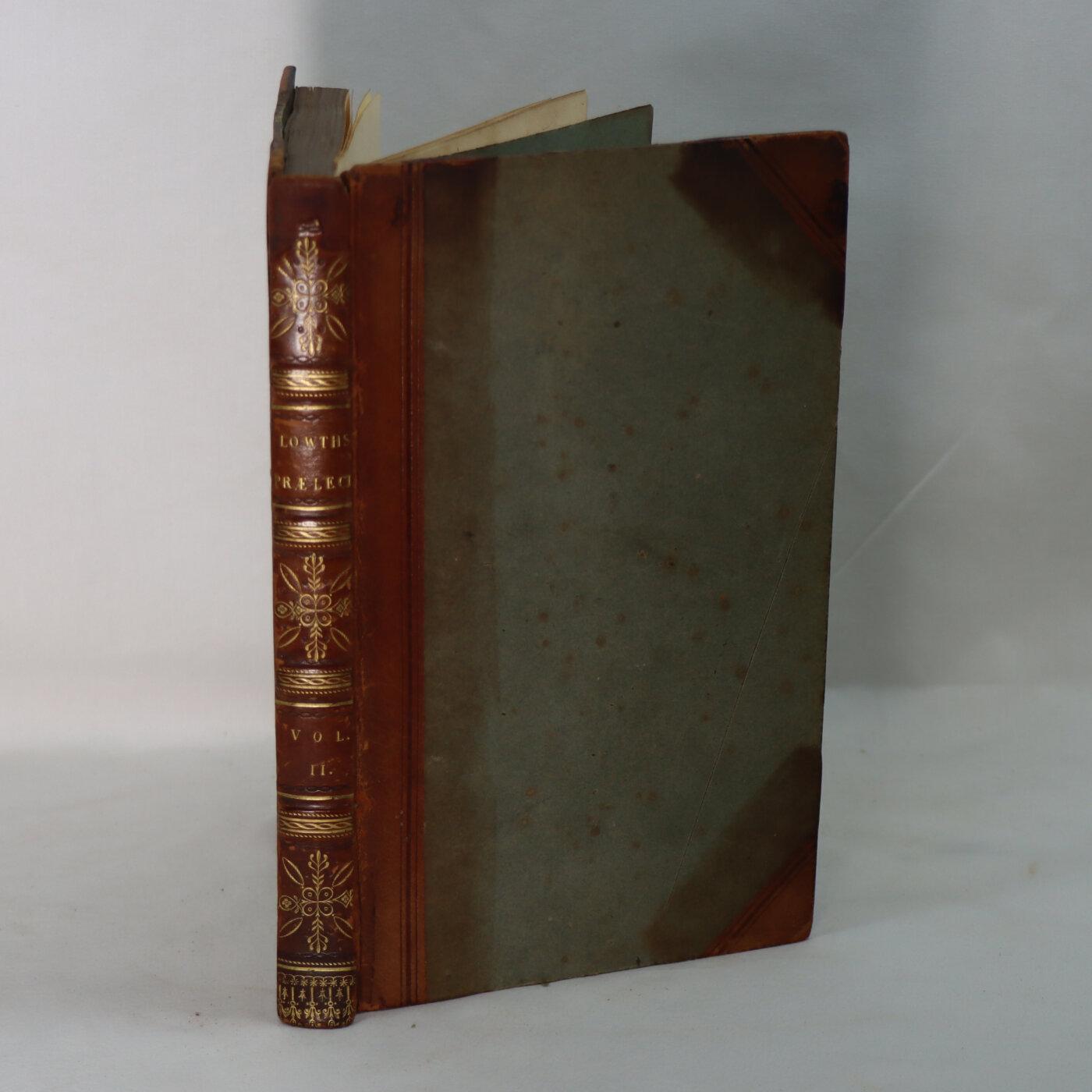
Related products
Share this Page with a friend

